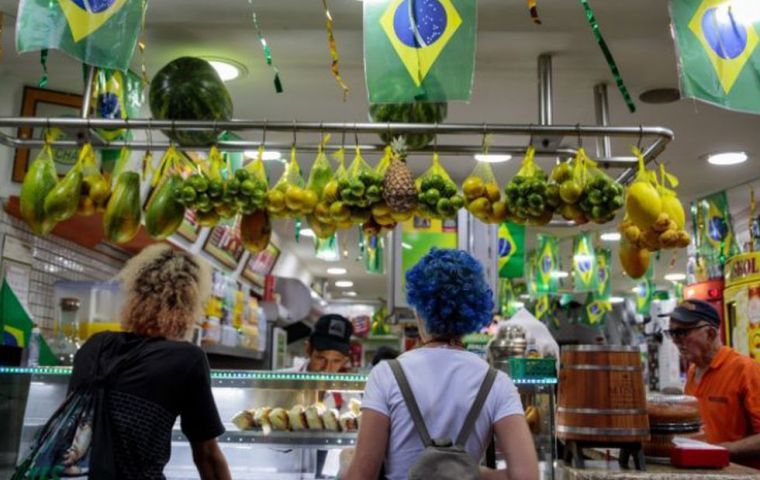MercoPress. South Atlantic News Agency
Brazilian March inflation the lowest in 25 years, with several consumer items in deflation
 On a monthly basis, the 0.07% inflation rate was the lowest for any March since launching the ‘Real Plan’ in 1994
On a monthly basis, the 0.07% inflation rate was the lowest for any March since launching the ‘Real Plan’ in 1994 Brazilian inflation slowed sharply in March, official figures showed on Thursday, falling to its lowest for that month in over quarter of a century as the new coronavirus crisis sapped demand for household goods and transport.
Both monthly and annual inflation slowed significantly from the month before, suggesting the initial impact of the coronavirus on consumer prices was deflationary, despite a notable increase in the cost of food and drinks.
With the economy likely to go into a deep downturn this year and oil and commodity prices having tumbled, overall inflationary pressures should remain contained, economists say, paving the way for further interest rate cuts.
“With demand collapsing and oil prices likely to stay low, we expect the headline rate to remain comfortably below the central bank’s target this year,” said William Jackson at Capital Economics.
“Policymakers had sounded cautious when lowering the (benchmark) Selic rate at their meeting in March. Today’s figures – and the growing economic damage from the coronavirus – should make them feel more confident about easing policy further,” he said, penciling in a 50 basis point cut to 3.25%.
On a monthly basis, the 0.07% inflation rate was the lowest for any March since Brazil launched the ‘Real Plan’ in 1994, IBGE said, and the 3.30% annual rate was lower than expected and well below the central bank’s end-year target of 4.00%.
Of the nine categories surveyed by the IBGE, three posted outright deflation in the month. Transport costs fell 0.9%, contributing the biggest single drag on overall price inflation worth 0.18 percentage points. Within that, air fares fell 16.75%, as air travel seized up in the month.
On the other hand, food and drink inflation jumped to 1.13% in March from 0.11% in February, reflecting the biggest single upward push on overall inflation worth 0.22 percentage points, IBGE said.
As more people bought food to cook at home rather than go out to eat, the cost of onions and carrots jumped more than 20% and the price of tomatoes rose more than 15% in the month, IBGE said.
IBGE said it changed the way it gathered price information on March 18 as quarantine measures were implemented across the country, switching to online, telephone and email surveys




Top Comments
Disclaimer & comment rulesCommenting for this story is now closed.
If you have a Facebook account, become a fan and comment on our Facebook Page!